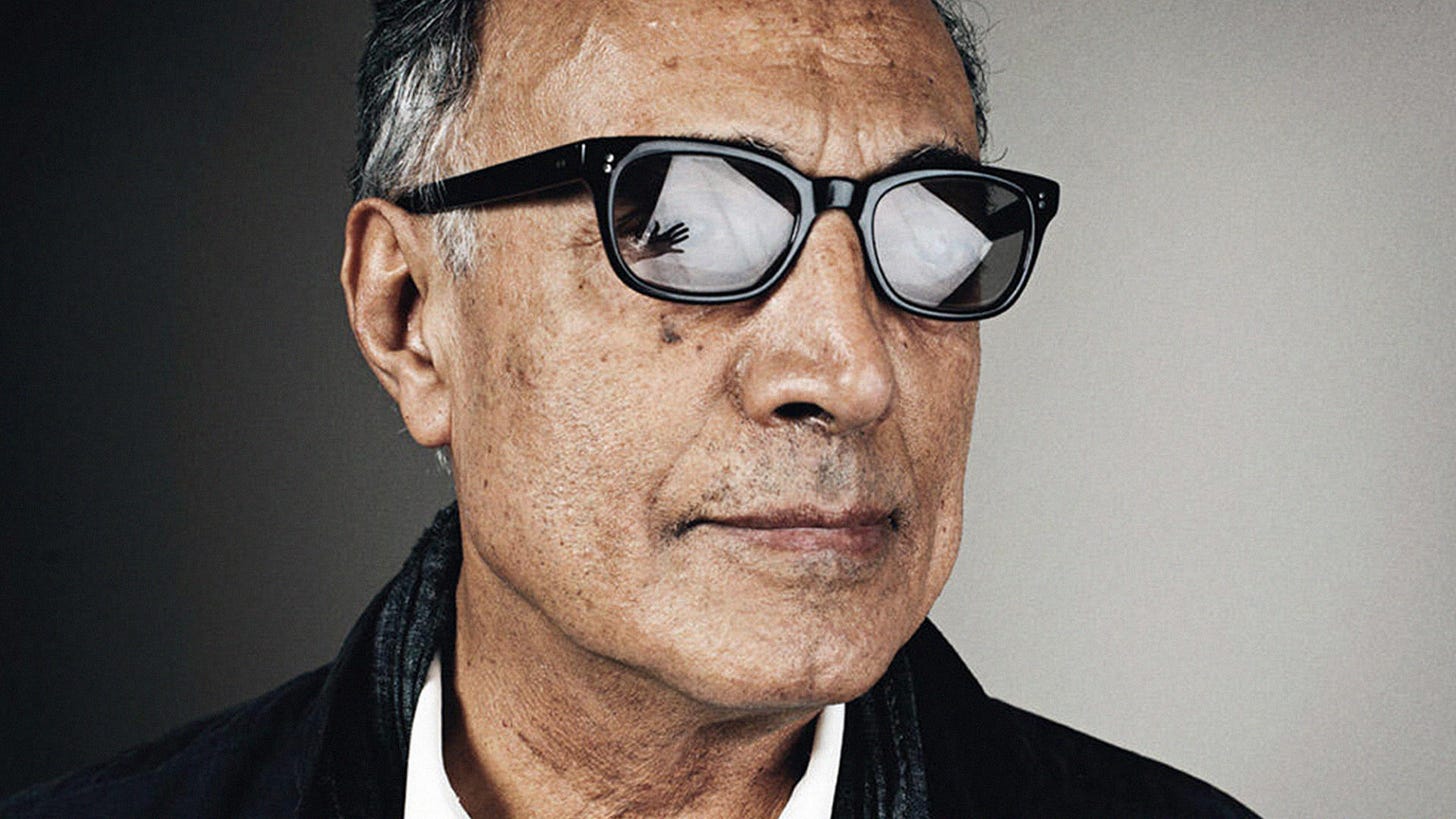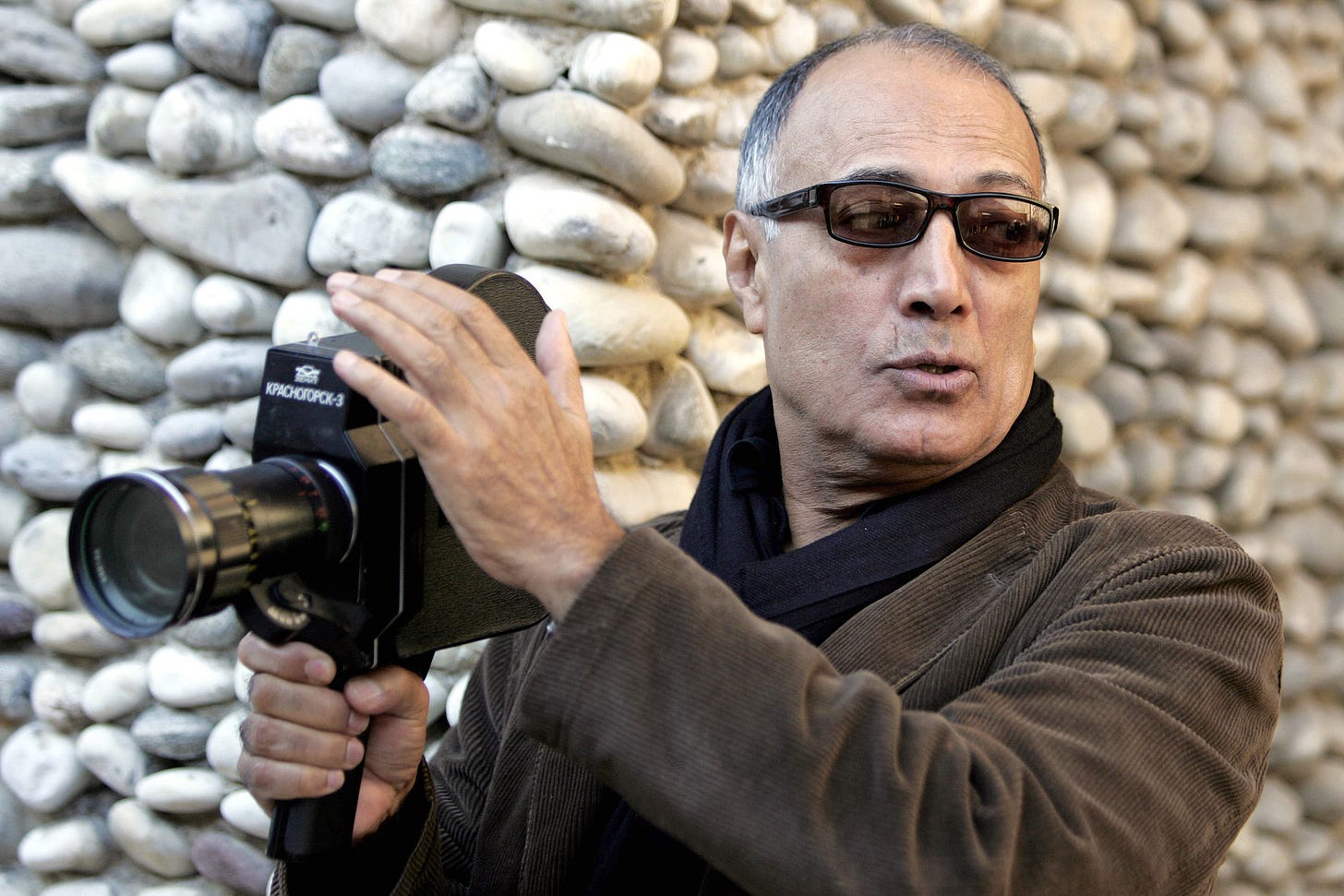1001 Filmmakers You Need to Know
Abbas Kiarostami
(June 22, 1940 – July 4, 2016)
Role: Director, Screenwriter, Producer, Photographer
Abbas Kiarostami was born and raised in Tehran, Iran, where he developed an early interest in the arts.
His initial pursuits were in painting and graphic design, which he studied at the University of Tehran.
Before moving into filmmaking, Kiarostami worked in advertising and illustration, skills that influenced his visual storytelling style.
This background helped him establish a unique approach to film, focusing on visual and narrative simplicity.
Kiarostami’s early life laid the foundation for his minimalist and contemplative cinematic style.
Kiarostami Influences:
Kiarostami was influenced by both Eastern and Western filmmakers, particularly the Italian Neorealists like Vittorio De Sica and Roberto Rossellini.
He admired their ability to depict real-life struggles through non-professional actors and naturalistic settings, a quality reflected in his own work.
Additionally, Persian poetry deeply influenced his storytelling, giving his films a lyrical, contemplative quality.
These influences inspired Kiarostami’s exploration of human experience through understated, thought-provoking narratives.
His work often reflects a blend of realism and philosophical introspection, drawing from both Iranian culture and universal themes.
Kiarostami’s First Feature:
Kiarostami’s first feature film, The Traveler (1974), tells the story of a young boy in rural Iran whose dream of attending a soccer game in Tehran leads him to great lengths.
This film highlighted his distinct style, combining realism with emotional depth, and showcased his ability to draw audiences into the everyday lives of his characters.
The Traveler set the stage for Kiarostami’s minimalist, observational approach, with an emphasis on moral and personal challenges.
The success of this early film earned him recognition within Iran’s film community.
It marked the beginning of a career that would see him become a leading figure in Iranian cinema.
Kiarostami’s Breakthrough:
Kiarostami’s international breakthrough came with Taste of Cherry (1997), which won the Palme d'Or at the Cannes Film Festival.
This existential film, exploring life and death through the story of a man searching for someone to bury him, resonated with global audiences for its simplicity and philosophical depth.
The film’s success elevated Kiarostami’s status on the world stage and introduced his distinct style to a broad audience.
Taste of Cherry established him as a filmmaker capable of addressing profound questions through minimalist storytelling.
The film was pivotal in bringing Iranian cinema to international prominence.
Kiarostami was celebrated for his minimalist approach, often using simple settings and non-professional actors to explore complex themes of identity, mortality, and the human condition.
His films are known for their slow pacing, contemplative tone, and ambiguous endings, encouraging viewers to ponder their interpretations.
Kiarostami’s works reflect a deep empathy for his characters and a focus on everyday life, imbuing his films with authenticity and universality.
His themes frequently revolve around philosophical questions, human resilience, and the beauty of ordinary moments.
This unique approach has cemented him as a significant and influential figure in world cinema.
At the time of his passing in 2016, Kiarostami was working on several projects and was also deeply engaged in photography, an art form he explored throughout his life.
He continued to inspire both Iranian and international filmmakers with his boundary-pushing, introspective works.
Even after his death, Kiarostami’s legacy endures as an influential force in contemporary filmmaking.
Retrospectives of his work are frequently held around the world, celebrating his enduring impact on cinematic art.
His contributions remain a vital part of both Iranian cinema and global film history.
Notable Films:
Taste of Cherry (1997)
Close-Up (1990)
The Wind Will Carry Us (1999)
Certified Copy (2010)
Where is the Friend’s House? (1987)
Note: The voices above are AI and trained on excerpts from 1001 Filmmakers You Need to Know and other publically available material.
P.S. Catch up on the rest from TheModernFilmmaker.co:
👉 Buy: The Modern Filmmaker’s On Set Filmmaking Dictionary, today.
👉 Some Filmmakers to Know: Julia Ducournau & Kathryn Bigelow…
👉 Some Filmmaking Terms: Above-the-Line & Back to First Marks…
👉 Some Stories: So there I was… Absolutely Screwed…
👉 Some Thoughts: Cover Your Ass & Your Films with this…
👉 Some Resources: For Filmmakers…












Share this post